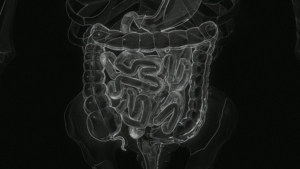Neurim tables Phase III data of insomnia drug
German-Israeli Neurim Pharmaceuticals announced top line efficacy results of its insomnia drug PedPRM in children with autism spectrum disorders (ASD).
The long-acting formulation of the hormone melatonin significantly improved total sleep time (TST), sleep initiation and maintenance in ASD children (age 2-18 years), the pivotal’s study primary endpoint. Ped-PRM is under review of the European Medicines Agency (EMA) Committee for Medicinal Products for Human Use (CHMP).
The study’s primary endpoint showed a clinically meaningful and statistically significant increase in total sleep time (p=0.034). Participants slept on average 57.5 minutes longer at night with PedPRM compared to 9.14 with placebo. Sleep latency (SL) decreased by 39.6 minutes on average with PedPRM compared to 12.5 with placebo (p=0.011) without causing earlier wakeup time. Sleep maintenance, parents’ quality of life and satisfaction of child’s sleep also improved significantly. Main study results were presented during the World Sleep Congress (Prague, October 9-12), and are in press in the Journal of American Academy of Child & Adolescent Psychiatry.
"Children with Autism Spectrum Disorder suffer from significant sleep problems which exacerbate their behavioral and functional deficits, and are particularly challenging to their families. Currently, there are no approved therapeutic options for pediatric insomnia, and that is particularly problematic for children with ASD" said Principal Investigator Professor Gringras, Head of Children’s Sleep Medicine Dept at Evelina London Children Hospital. "The results of the study indicate that PedPRM is an effective and safe treatment which is well tolerated even in this challenging population.
Melatonin is a hormone involved in regulation of the circadian clock and sleep. The pediatric formulation was designed for populations with swallowing difficulties in response to the unmet medical need in the field of pediatric insomnia. The pivotal phase III study was a randomized, double-blind, placebo-controlled, parallel group, multi-center (EU and USA) study in children with ASD or neurogenetic diseases and sleep disorders. 125 patients, who had not shown improvement after standard sleep behavioural intervention, received 2 weeks placebo run-in, and were then randomized to PedPRM (2mg with optional increase to 5mg) or placebo in the evening, for 13 weeks. Completers received PedPRM open-label for additional 13 weeks. Primary efficacy endpoint was defined as the difference between PedPRM and placebo in mean change from run-in baseline to the end of double-blind treatment period, in parent-reported TST (Daily Sleep and Nap Diary). Additional endpoints assessed children’s sleep initiation and maintenance, behavioral and social functioning, as well as, parent’s quality of life. Patients are now being followed up to 78 weeks to assess the long-term efficacy and safety of PedPRM and results will be presented in 2018.



 Unsplash+
Unsplash+